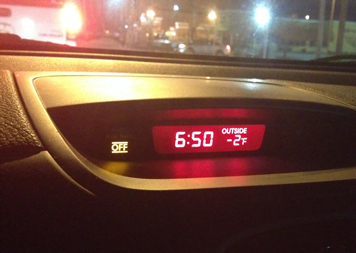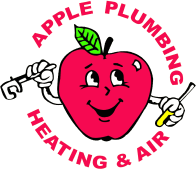
Remember the Polar Vortex last winter? During the week of January 6-10, we did well over 100 frozen pipe emergency calls!! By Wednesday afternoon that week, all of our techs had put in 40 hours and were into overtime. I’ve been in the plumbing service business 46 years and I have NEVER seen anything like that. And it continued on for weeks. Weather forecasters are predicting a “colder than average” winter for the East Coast this year. Because of an early snow in the Siberian Dessert we stand a good chance for another Polar Vortex. Dang!
So, there are a few things you need to consider with your plumbing system to prepare for the possible frigid weather this winter:
Outside hoses and faucets. I suggest removing your hoses from your hose bibs and drain them completely. Coil them up and store them in a safe place. Outside hose bibs should be winterized too. If you have frost free hose bibs, all you generally need to do is disconnect your hose. These faucets are self-draining….for the most part. In some situations the frost free feature has been compromised through faulty installation or interior changes in your house such as a basement finish. Check it out.
Traditional hose bibs do not have a frost free feature and must be shut off with an interior valve and the pipe drained.

Overhangs. If you have plumbing on an overhang, you need to make sure the piping in the overhang is properly insulated, that the building insulation is properly installed, and that any cracks or openings in your siding and exterior finish are sealed.
Well pits. Last winter we had more than one customer with an old time well pit in their yard. This is basically a cinderblock pit anywhere from 3’-6’ deep and 5’-6’ squared with a concrete lit and an access opening. We had such a prolonged sub-freezing period that the pipes in the pits would freeze. In most cases a portable heater will keep the pipes from freezing. Be aware that well pits are very moist environments so protect yourself from electrical shock. You may want to have a licensed electrician take a look for you.
Pipes in exterior walls. Many people last winter experience frozen pipes in exterior walls that, fortunately, froze but didn’t burst. They were lucky!! If you had this situation, you should investigate your situation and look for cracks or openings in your wall and make sure you have sufficient insulation. Barring that, what you can do is when frigid weather is predicted is open a faucet in the affected sink or bathtub and let water trickle out. The moving water generally keeps pipes from freezing.
Sump pumps. Make sure your sump pump discharge pipe is clear and the outlet is not blocked by snow and ice. Many people have water treatment and/or condensing furnaces that discharge into the sump pump pit. If the sump pump pipe is blocked and your water treatment regenerates, you could have a mess in your basement. So find your sump pump discharge pipe outside now when there is no snow hiding it.
Power Outages. This has not much to do with plumbing as with life safety. Many people don’t have the luxury of an emergency generator. So, what to do when the power goes out and it’s cold outside? We lost our power twice last winter and, boy howdy, did it get cold in the house. We are fortunate enough to have a fireplace in our family room. So, we built a fire, lit some candles, shut the door and hunkered down for a cold night. There is one plumbing task I did before I turned in: I shut off my main water valve and drained the pipes. I also shut off the electric to the water heater. I opened every faucet in the house and let the pipes drain down to the laundry tub (the lowest fixture in my house). I you experience a prolonged outage in sub-freezing temperatures, your pipes will freeze….and possibly burst.
Sprinkler pipes. Many houses now have a fire sprinkler system. Some older ones also. In many of those sprinkled houses there are sprinkler pipes in the attic. Over time, attic insulation can settle and exposed the sprinkler pipes. Also, homeowners store items in their attics and can disturb the insulation. Sprinkler pipes can freeze, burst, and cause severe property damage. We had a customer in Hampstead last winter who experienced this very situation. As best we can tell, her attic sprinkler pipe burst shortly after everyone left for work in the morning and water flowed for about 10 hours. The entire house had to be gutted and redone. New kitchen cabinets, new carpet, new hardwood floors, new furniture, all clothing had to be dry cleaned and the family had to live in a hotel for months. If you have a sprinkler system, check your attic insulation. Even with homeowners insurance, the disruption can be overwhelming.
That’s about it. The best advice I can give is “Be Prepared”. Frozen and busted water pipes can cause quite a bit of property damage….especially if they burst while no one is home.
Same Day Emergency Service available! Call us at 410-840-8118 or fill in the form.





